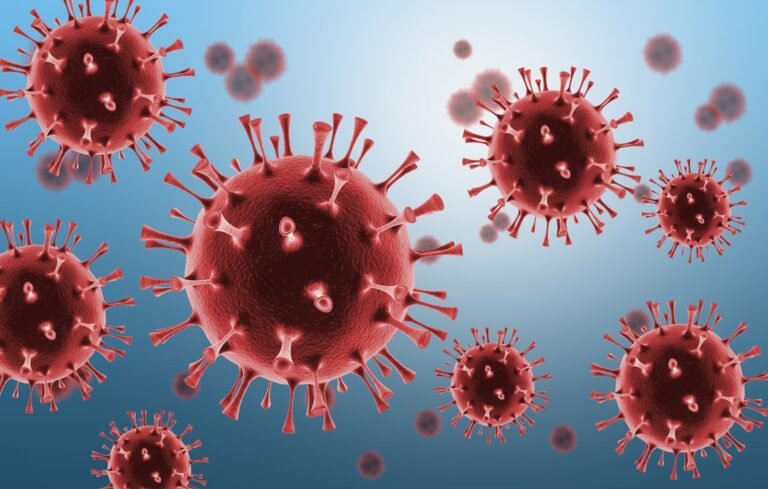In a recent case-control study published in Scientific Reports, Researchers compared single nucleotide polymorphisms (SNPs) in the vitamin D receptor (VDR) gene between patients with mild and severe coronavirus disease 2019 (COVID-19).
They found that the TT genotype of SNP rs11568820 was significantly less frequent in hospitalized patients with COVID-19, suggesting its protective role against severe illness and hospitalization.
Study: Comparison of vitamin D receptor gene polymorphisms at rs11568820, rs7970314, rs4334089 between mild and severe symptomatic COVID-19 patients: a case-control study. Image credit: Billion Photos/Shutterstock.com
Record
The clinical spectrum of COVID-19 ranges from mild symptoms to severe pneumonia or death. While serum vitamin D levels may not affect susceptibility to COVID-19, deficiency is more common in severe cases. Vitamin D, produced in the lungs, regulates immune responses and may affect the severity of COVID-19.
VDR gene polymorphisms affecting VDR function are associated with immune responses. In patients with COVID-19, different VDR polymorphisms are associated with different symptoms, such as dyspnea, kidney disease, and hypertension. Genetic variants in the vitamin D pathway affect susceptibility to respiratory infections.
Understanding these genetic factors could help guide treatment strategies, identify individuals at risk, and inform future research into the management of COVID-19.
Therefore, the researchers in the present study aimed to evaluate and compare VDR polymorphisms between patients with mild and severe cases of COVID-19.
About the study
Participants from the 5-year Isfahan COVID Cohort (ICC) study were enrolled in the present study. A total of 176 patients with COVID-19 were included, of which 85 hospitalized patients (mean age 59.04 years, 37% male) and 91 non-hospitalized patients (mean age 47.77 years, 44% male).
Eligible patients aged 19 years or older with positive RT-PCR (short for reverse transcription polymerase chain reaction) results were selected using convenience sampling from provincial health center datasets.
While hospitalization criteria were based on World Health Organization (WHO) definitions of moderate or severe cases, non-hospitalized patients were asymptomatic.
Written informed consent was obtained from all participants and the National Institutes of Medical Research Development (NIMAD) approved the study protocol in Tehran, Iran.
The data collection was carried out by interviewers of the health centers, trained in the procedures of administration and measurement of questionnaires. Demographic, socioeconomic and lifestyle data were collected.
Patients’ medical histories were obtained, including noncommunicable diseases such as cardiovascular disease, hypertension, diabetes mellitus, chronic respiratory disease, chronic kidney disease, and medication history.
Blood samples were collected for deoxyribonucleic acid (DNA) isolation. DNA quality was then assessed using Nanodrop and agarose gel, followed by genotyping of VDR gene polymorphisms using amplification resistant mutation system (ARMS) PCR and Sanger sequencing.
Statistical analysis included the use of chi-square test, Fisher-exact test, Student’s t-test, Mann-Whitney test, Bonferroni correction, odds ratios (OR) and logistic regression.
Results and discussion
In the hospitalized group, mean age and mean circumference were higher, while physical activity levels were lower compared to the non-hospitalized group. In addition, the hospitalized group had a lower frequency of smokers but higher rates of hypertension and diabetes mellitus compared to the non-hospitalized group.
Among the SNPs studied, the TT genotype of rs11568820 was found to be significantly rare in the hospitalized group (3.5%) compared with the non-hospitalized group (17.6%; P = 0.018).
Statistical significance was also observed in the residual model (P = 0.003). However, no significant differences were found in the genotypes or allele frequencies of SNPs rs7970314 and rs4334089 between the two groups.
In addition, the rs11568820 SNP genotype showed a significant inverse association with COVID-19 hospitalization, even after adjustment for comorbidities such as coronary artery disease, current smoking, and body mass index. Specifically, this genotype was associated with an 82% reduction in the risk of hospitalization (OR 0.18).
In contrast, no significant association was observed between the genotypes of SNPs rs7970314 and rs4334089 and COVID-19 hospitalization. Specifically, the residual model for rs11568820 showed a significant association with hospitalization (OR 0.14), while other SNPs did not show significant associations.
A key strength of the study lies in exploring the distribution of the VDR SNP across varying severities of COVID-19, a perspective that has been less explored in previous research focusing primarily on serum vitamin D levels and susceptibility.
However, the study is limited by its descriptive nature, preventing the establishment of causal relationships between polymorphisms in VDR and severity of COVID-19.
In addition, the lack of measurements of serum vitamin D level and data on immune factors limits the comprehensive interpretation of the findings. This calls for larger, more detailed investigations in different subgroups of patients.
conclusion
In conclusion, the present study identified the TT genotype of rs11568820 as a protective factor against severe COVID-19. However, confirmation of these findings requires larger studies that take into account various confounding factors.
In the future, understanding genetic predispositions may enhance personalized therapeutic approaches against COVID-19.
